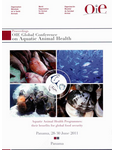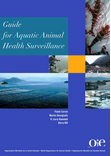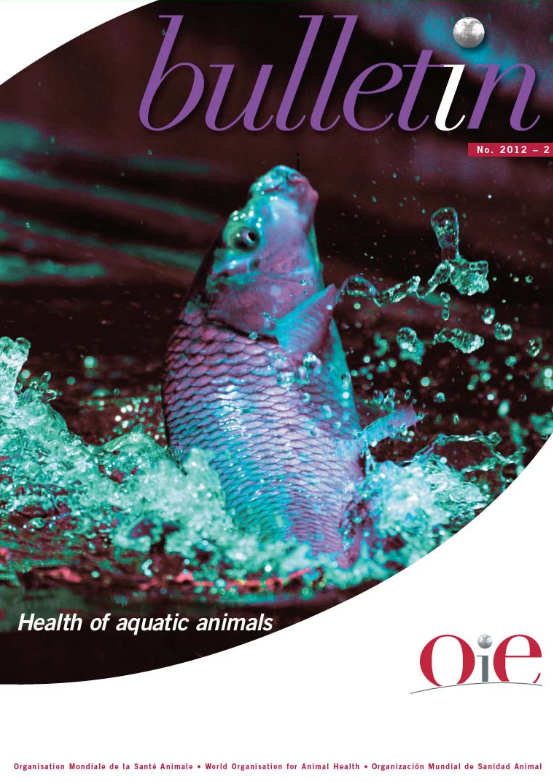Aquatic animals
Aquatic animals play a key role in achieving a more prosperous and secure world, contributing to Sustainable Development Goals (SDGs).

Importance of aquatic animals
Human consumption of aquatic animal products is greater than ever before. Today, aquatic animals are the main source of protein for billions of people worldwide, and demand is expected to increase. To satisfy this demand, aquatic animal production will need to double by 2050, with most of this growth coming from aquaculture. Yet, aquatic animal diseases threaten the sustainable growth of the aquaculture sector and, consequently, our food supply. This threat is shared and requires coordinated actions by the World Organisation for Animal Health (WOAH) and its Members, in collaboration with relevant stakeholders, to protect and improve aquatic animal health worldwide.
Aquatic animal health programmes are essential to ensure sustainable production systems. Veterinarians, aquatic animal health professionals, and other actors play a crucial role in ensuring the production of aquatic animals that does not jeopardise their health or welfare and of aquatic animal products that are safe for human consumption and appropriately certified to meet international trade requirements. WOAH is constantly seeking to raise awareness on the need for good governance of Veterinary Services and Aquatic Animal Health Services (both governmental and private sector).
WOAH Aquatic Animal Health Strategy 2021-2025
WOAH acknowledges the need to build more sustainable aquatic animal health systems, and as a result, launched its first Aquatic Animal Health Strategy in May 2021, at the 88th General Session. This Strategy will improve aquatic animal health and welfare worldwide, contributing to sustainable economic growth, poverty alleviation and food security, thereby supporting the achievement of the Sustainable Development Goals.
Discover the Strategy, its objectives and specific activities, as well as how you can contribute.
Situation reports
-
Report, Situation
1st quarter 2023: fish
.pdf – 434 KB See the document -
Report, Situation
2nd quarter 2023: molluscs
.pdf – 533 KB See the document -
Report, Situation
3rd quarter 2023: crustaceans
.pdf – 1 MB See the document -
Report, Situation
2nd quarter 2024 : amphibians
.pdf – 2 MB See the document
Barriers to the implementation of WOAH Standards for aquatic animal health
A survey of Members was conducted to identify the barriers preventing transparent reporting of aquatic animal diseases and implementation of WOAH Standards for aquatic animal health. This survey focused on Member feedback to address the following activities described in the Aquatic Strategy:
- identification of barriers to the implementation of standards (Activity 1.5)
- support for the implementation of standards (Activity 2.1)
- identification of barriers to transparency in disease reporting (Activity 2.4)
- increased use of the Performance of Veterinary Services (PVS) Pathway (Activity 2.2)
- support for WOAH Delegates and Focal Points (Activity 2.6).
Discover the survey findings and recommendations to WOAH and to its Members.
-
.pdf – 100 KB See the document
How is WOAH protecting aquatic animal health and welfare?
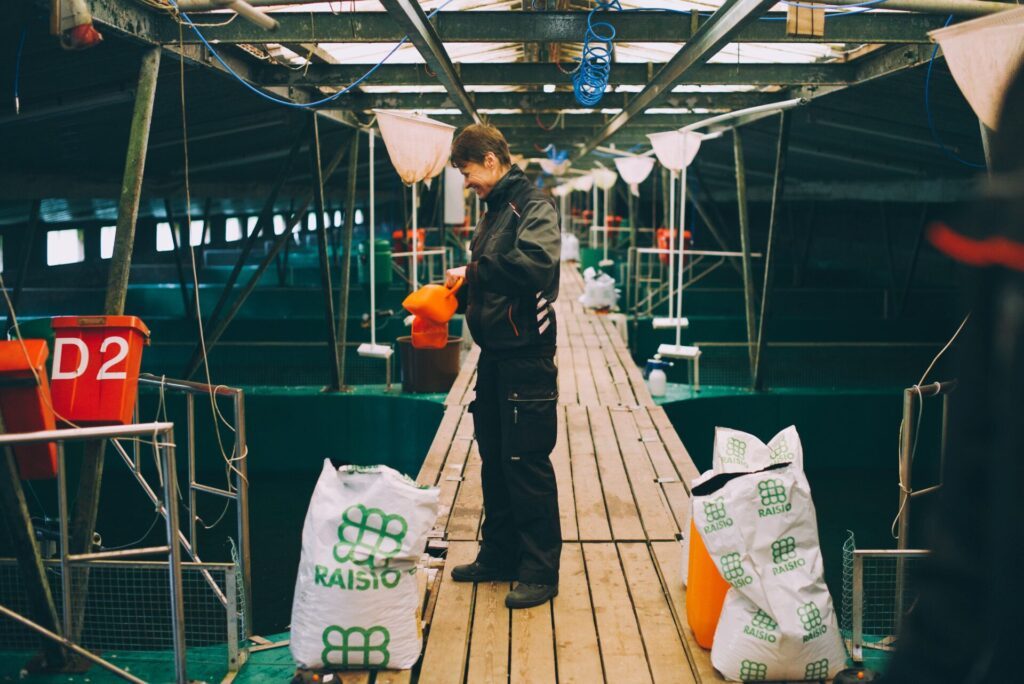
Standards
The World Organisation for Animal Health (WOAH) provides international Standards for the improvement of aquatic animal health worldwide. Recommendations published in the WOAH Aquatic Code should be used by the Competent Authorities of importing and exporting countries for early detection, reporting and control of pathogenic agents in aquatic animals and to prevent their spread via international trade in aquatic animals and their products, while avoiding unjustified sanitary barriers to trade. The Aquatic Code also includes standards for the welfare of farmed fish, and the responsible and prudent use of antimicrobial agents in aquatic animals
Welfare
The use of farmed fish for food or any other purpose carries the ethical responsibility to avoid unnecessary suffering of these animals. It is also a critical relationship between welfare and health aquatic animals. WOAH has developed welfare standards for farmed fish that cover transport, stunning and killing for human consumption and killing for disease control purposes. Find the standards on aquatic animal welfare published in the Aquatic Code.
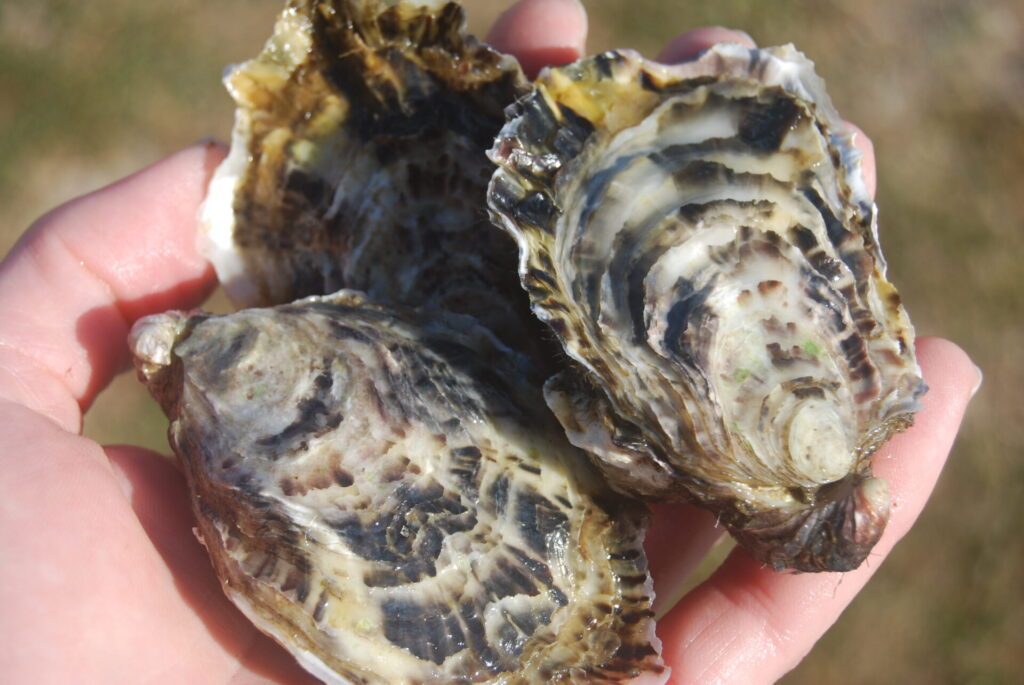
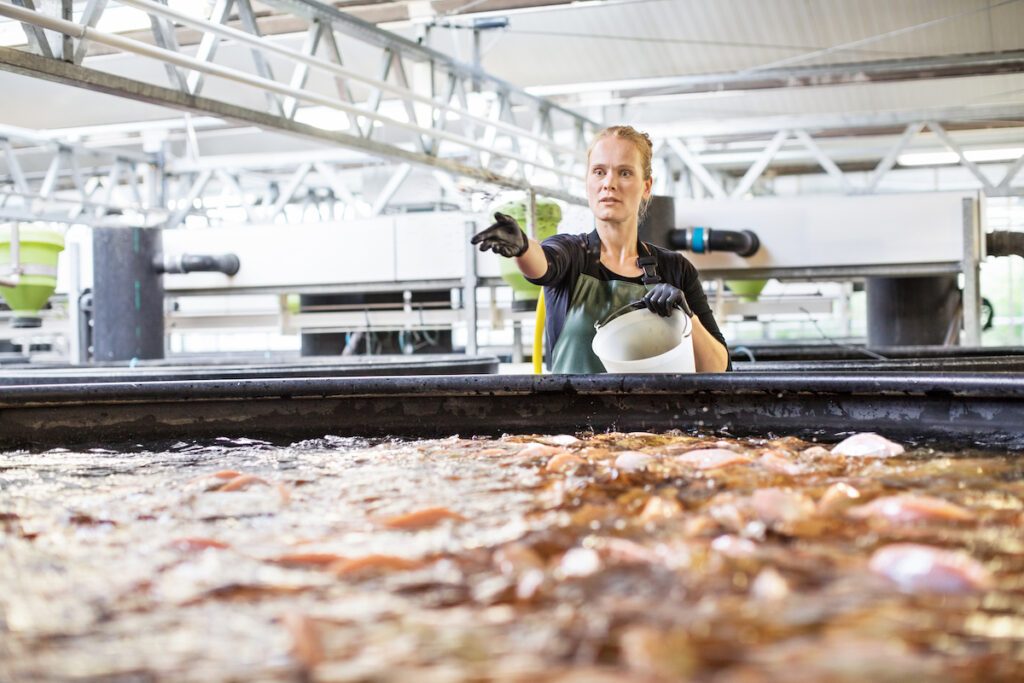
Responsible and prudent use of antimicrobials
Misuse and overuse of antimicrobials in aquatic animals increase resistance risk, endangering both animal and human health and welfare. WOAH has developed international Standards in the Aquatic Animal Health Code on the responsible and prudent use of antimicrobial agents in aquatic animals, and on monitoring programmes for antimicrobial resistance (AMR). It has developed a communication campaign to explain the actions that the different actors from the animal health sector can take to use antimicrobials prudently and responsible and implement the WOAH international standards. WOAH has also published a ‘List of antimicrobial agents of veterinary importance’ that has been adopted by the World Assembly.
Responsible and prudent use of antimicrobial agents in aquatic animals is important to ensure public health, food safety, aquatic animal health and production, and biodiversity and environment protection.
Providing a window into the aquatic animal health situation
Reporting information, improving trade!
WOAH also provides information on the aquatic animal disease situation worldwide –including disease alerts – through the online World Animal Health Information System (WAHIS). This information is important for Member Countries to enable them to act as soon as possible to prevent the spread of transboundary and emerging diseases. Access here to the WOAH list of notifiable aquatic animal diseases.
With the increase in aquaculture and the global trade of aquatic animals and their products, there is a risk that diseases will spread to new geographic areas and new diseases will emerge. Learn in this infographic about the importance of reporting information on aquatic animal health through the WAHIS platform and how it can help countries to control diseases and ensure safe international trade.
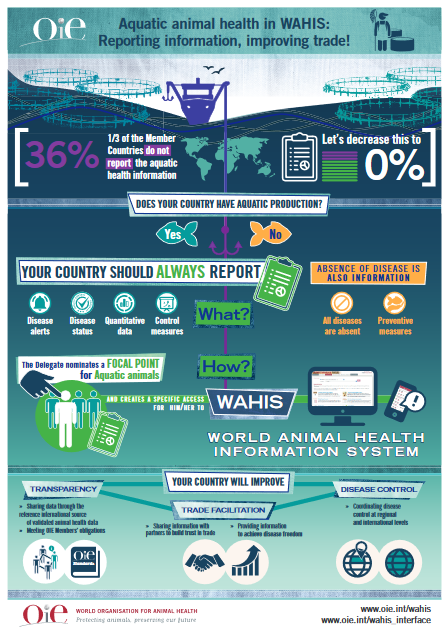
Annual report for wildlife: a win-win investment!
Considering the open environments in which aquatic animals often live, some diseases can also cause significant negative impacts on wild populations: for example, 96 % of the fire salamander population in the Netherlands died after an outbreak of B. salamandrivorans in 2010. This disease can have significant impacts in wild populations (including extinction) in many amphibian species and is a serious threat to biodiversity. Disease surveillance in wildlife is essential to collect data and enable better responses to these threats. Read about the benefits of the WAHIS-Wild annual report for wildlife in this infographic.
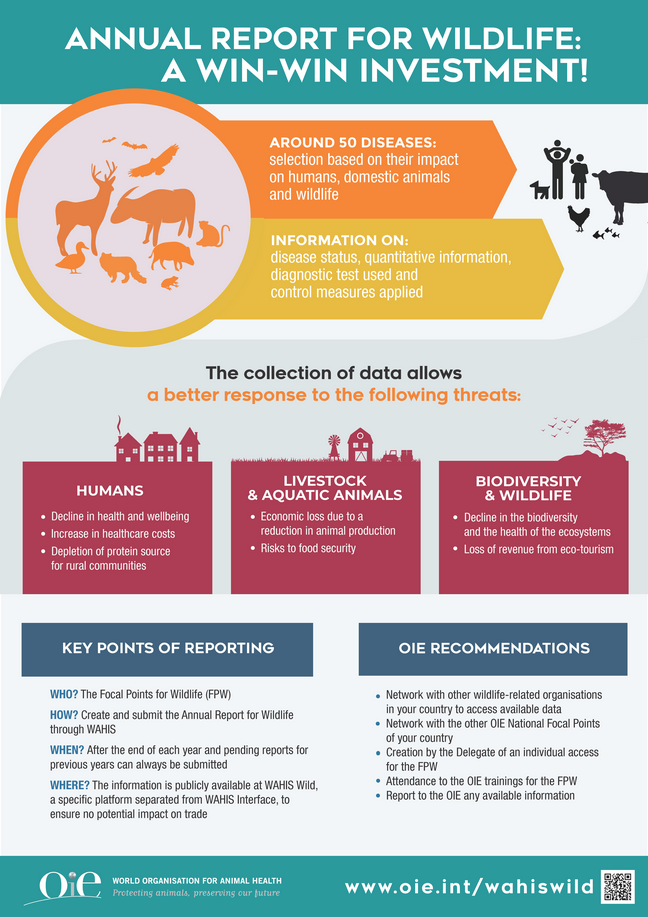
Strengthening Aquatic Animal Health Services through WOAH PVS Pathway
The WOAH PVS Pathway is a continuous process aimed at sustainably improving the compliance of a Member’s Veterinary Services or Aquatic Animal Health Service with relevant WOAH international Standards.
The first edition of the ‘WOAH Tool for the evaluation of Performance of Veterinary Services and/or Aquatic Animal Health Services (AAHS)1’ (PVS Tool: Aquatic) was published in 2013. PVS Evaluation missions assist a Member to establish its current level of performance, to identify gaps and weaknesses in their ability to comply with WOAH international Standards, to form a shared vision with stakeholders (including the private sector) and to define priorities and carry out strategic initiatives. Learn more about the WOAH PVS Tool: Aquatic
1. In some countries the Veterinary Services are the Competent Authority for Aquatic Animal Health Services while, in others, other agencies of government hold this responsibility.
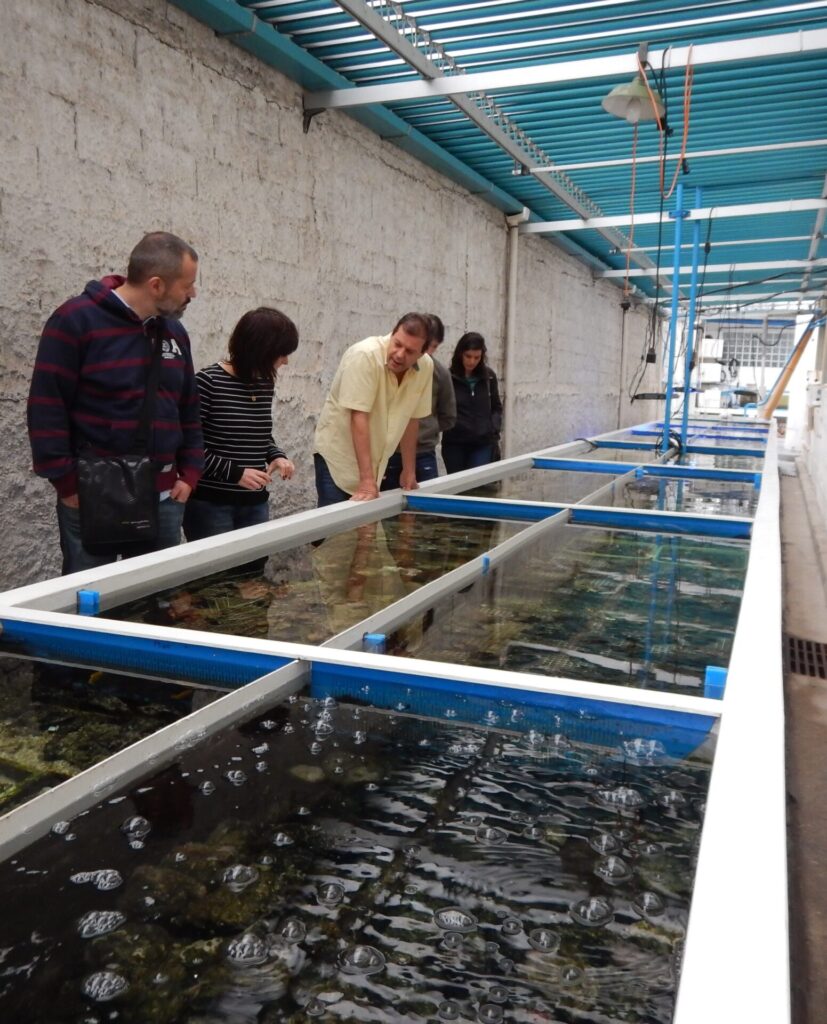
Building national capacities
Each WOAH Member Country is represented by a national Delegate to WOAH. Delegates are encouraged to nominate a national Focal Point for Aquatic Animals. This Focal Point is responsible for supporting the Delegate to participate in the standard setting process and to fulfil the country’s obligations as an WOAH Member (e.g. disease notification and compliance with WOAH international Standards). WOAH has established training programmes to support the capacity building of the national Focal Point for Aquatic Animals. Learn more about the focal point for aquatic animals terms of reference.
Providing an international network of aquatic animal experts
WOAH global scientific expertise in aquatic animal health is composed of 33 Reference Laboratories and two Collaborating Centres located around the world. Get an overview of their role here.
Multimedia resources
This page provides access to a range of useful information on the World Organisation for Animal Health (WOAH) activities in aquatic animals. Please, feel free to use and disseminate this information.
Brochures
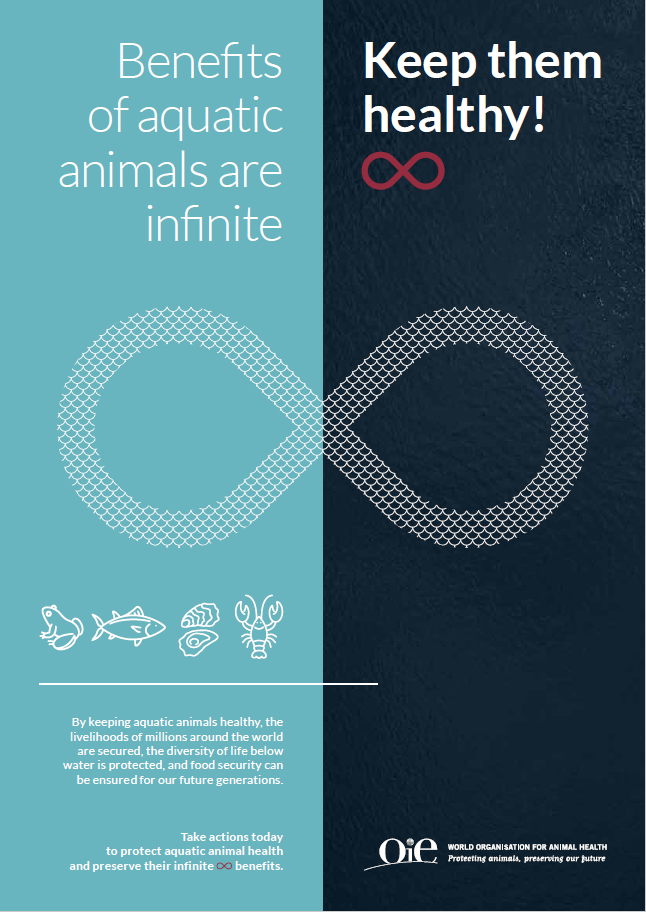
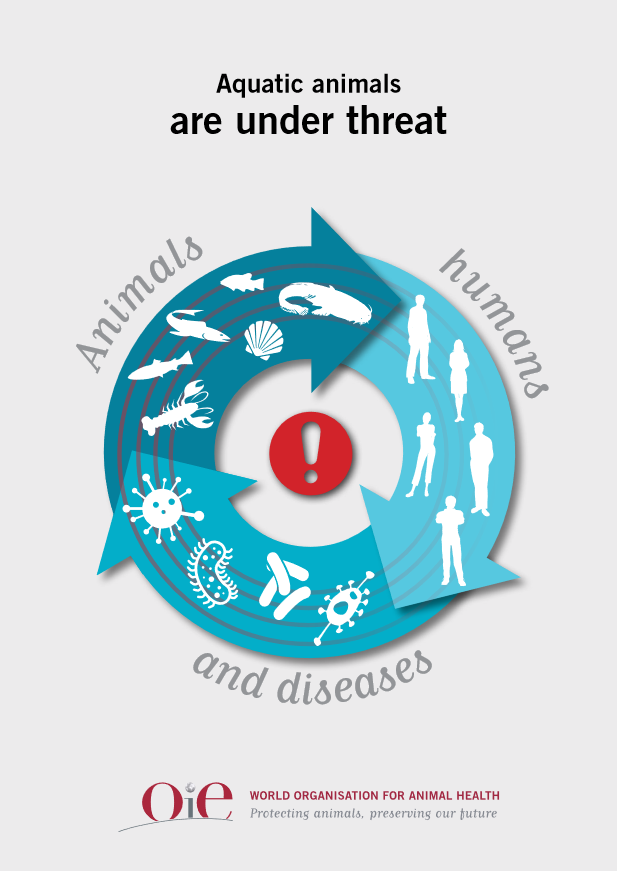
Infographics


Animations
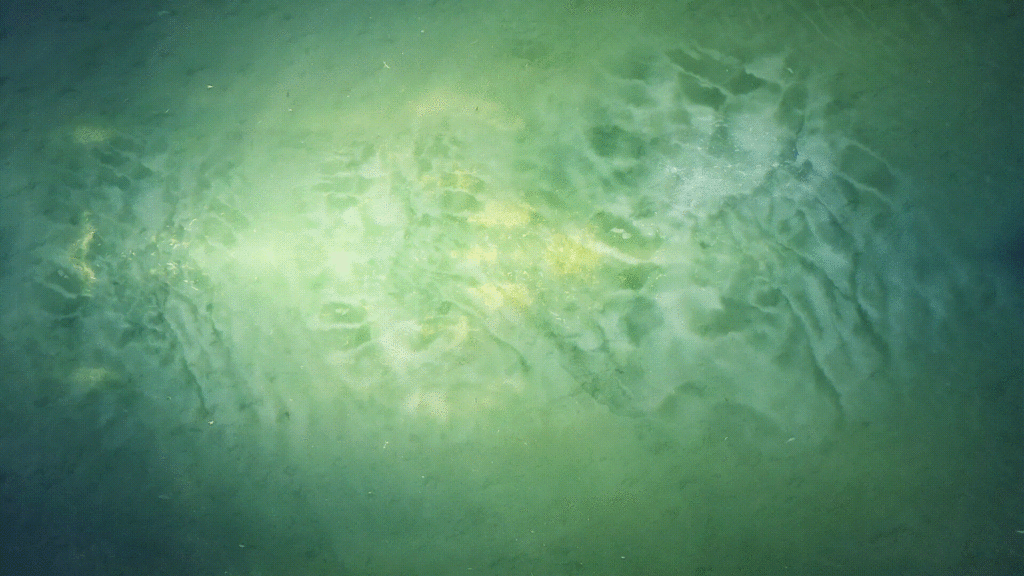
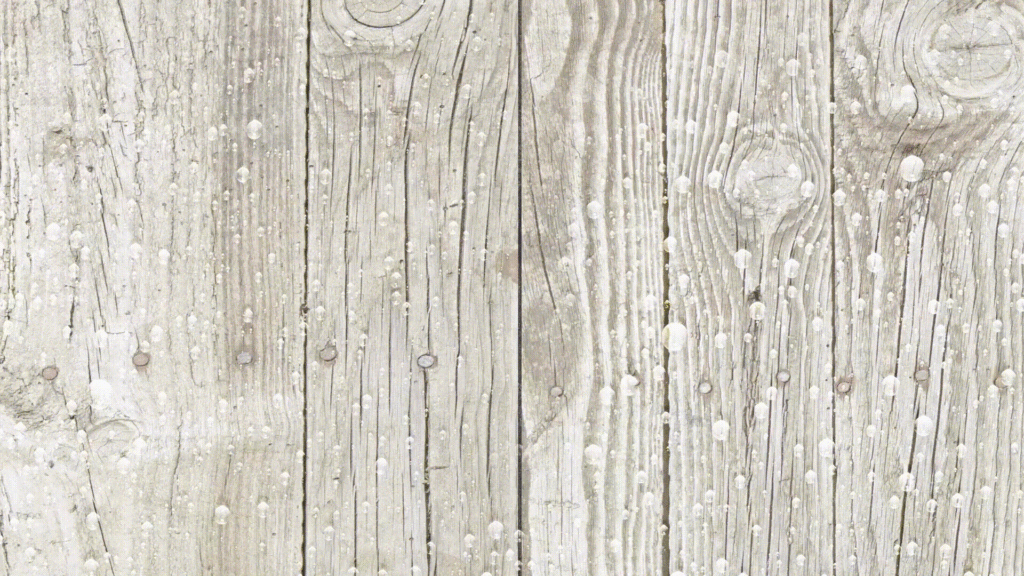
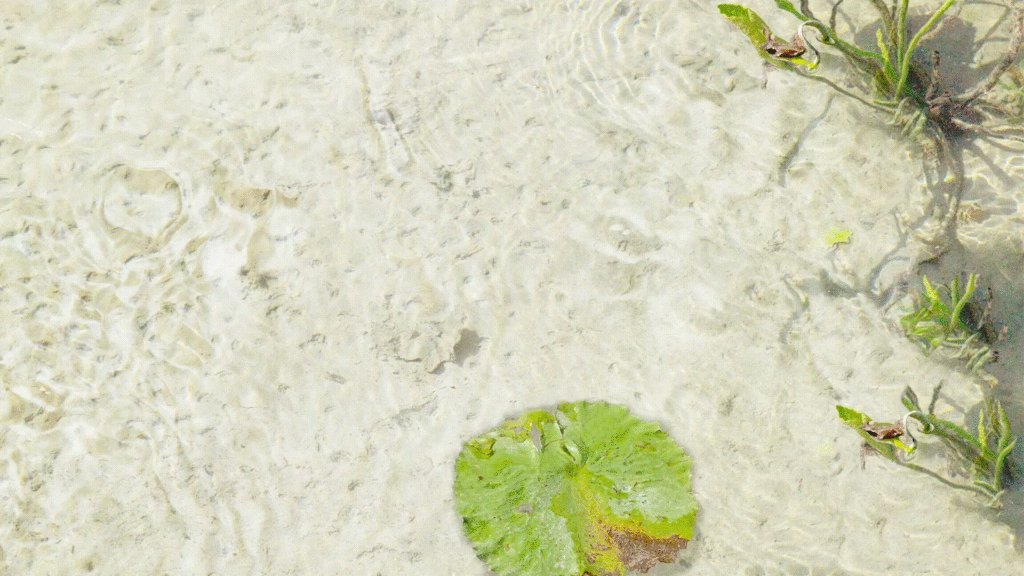
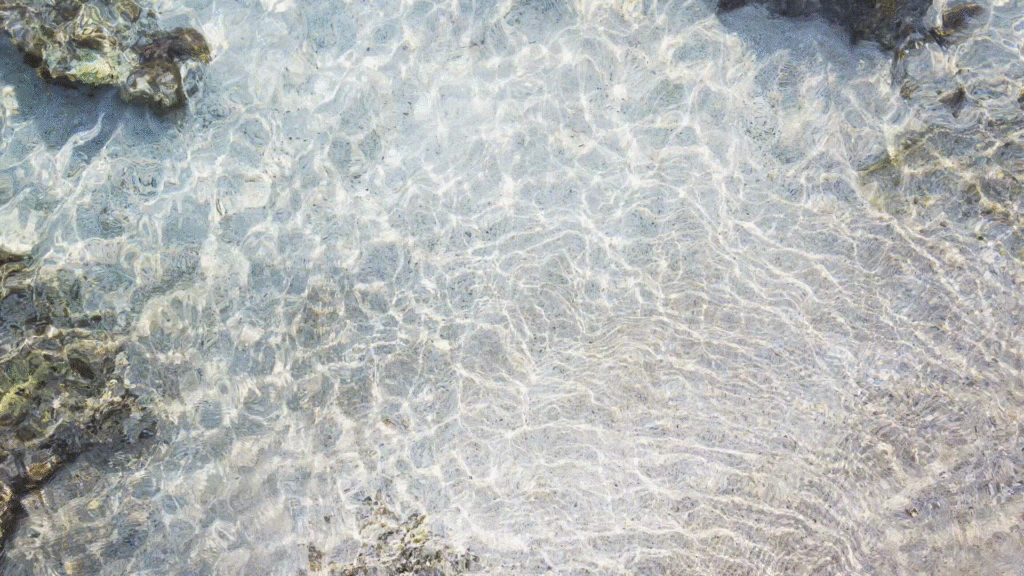
Email Footer

‘We need you’ communication campaign
Discover here the communication tools to raise awareness on antimicrobial resistance in aquatic animals

Publications
WOAH Global Conferences on Aquatic Animal Health
Collaboration, Sustainability: Our future; Santiago, Chile, 2019.
Riding the wave to the future; Ho Chi Minh City, Vietnam, 2015.
Benefits for global food security; Panama City, Panama, 2011.
Shared responsibility and stronger commitment at all levels; Bergen, Norway, 2006

